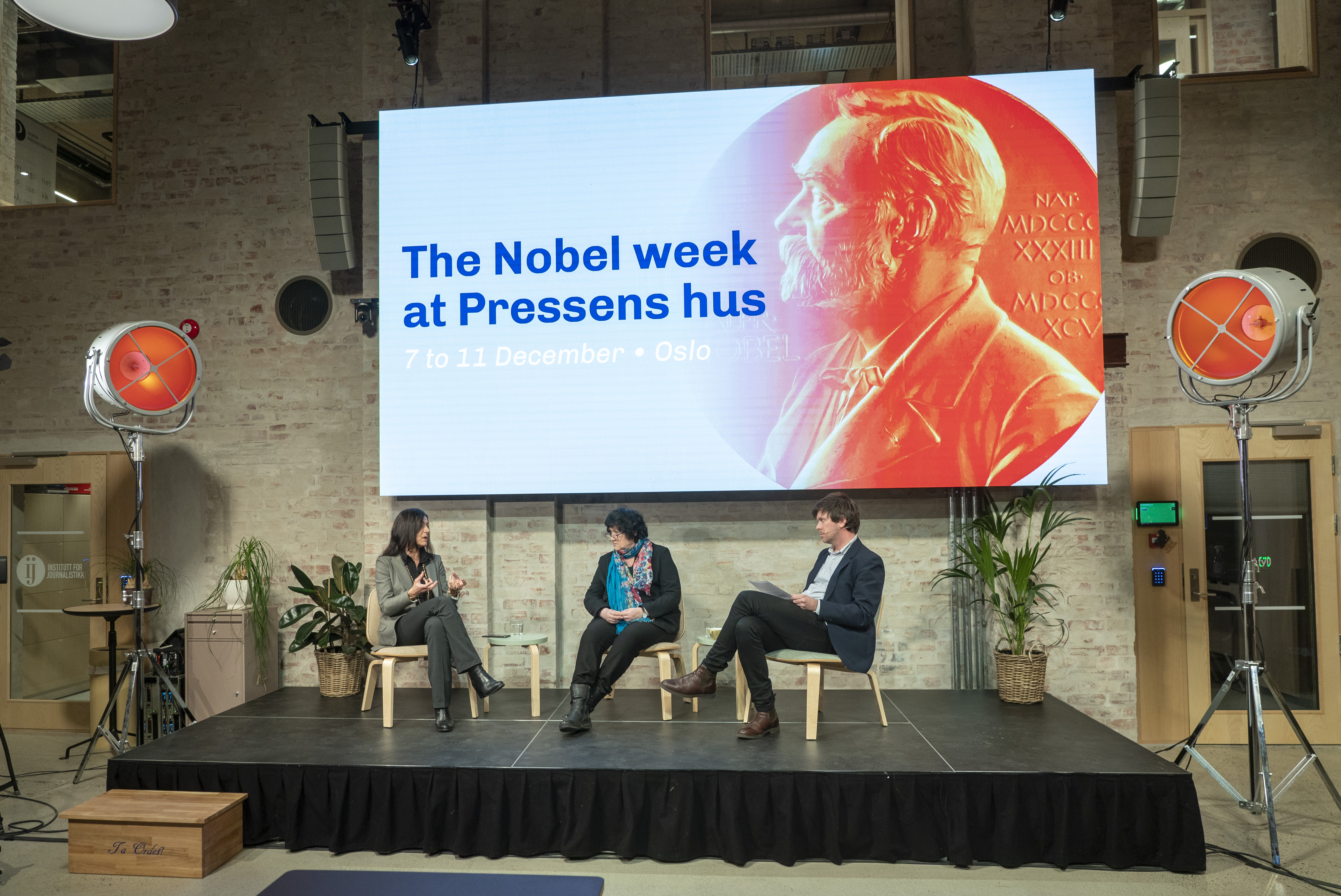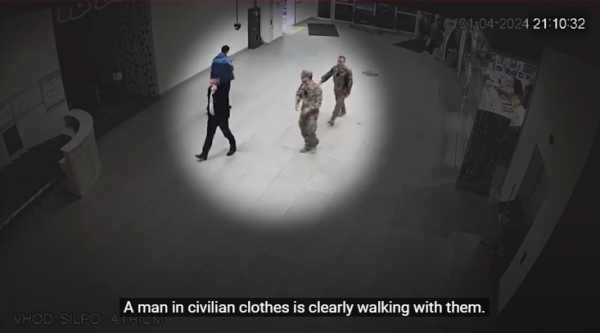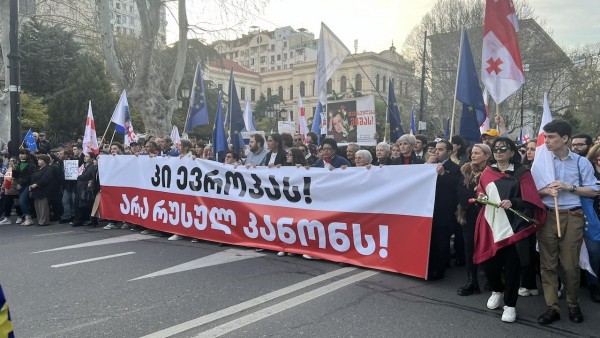As part of the Norwegian Press House’s Nobel Week programme, IPI’s Norwegian National Committee invited IPI Executive Director Barbara Trionfi and Nadezhda Azhgikhina, the director of PEN Moscow and an IPI member, to join a conversation with Barents Press chairman Amund Trellevik on promoting press freedom worldwide.
“It was one of the happiest days of my life, it was not just an extraordinary event, it was a sign of hope”, Azhgikhina said of her initial reaction to hearing that the Nobel Peace Prize had been awarded to IPI Executive Board member Maria Ressa of Rappler and IPI Free Media Pioneer award winner Dimitry Muratov of Russia’s Novaya Gazeta. “The first words Dmitry said after receiving this news about the award were that it was not a Nobel prize for him or his newspaper, but it was especially for Anna Politkovskaya, Yuri Shchekochikhin and other deceased journalists of Novaya Gazeta and all killed journalists. It was a very important moment”, she said.
Trionfi highlighted the many challenges media and journalists are currently facing around the world, and how societies could help preserve independent journalism. “The situation of press freedom today is in profound crisis around the world”, Trionfi said. “This comes from a combination of factors. On one hand there is the crisis of the news industry itself, with social media and the change in the business model of news media. Independent media have been weakened a lot because of the economic challenges. And of course, governments have taken advantage of it.”
She added: “A lot of independent news media rely on their readers in order to receive the financial support they need to survive. Maria Ressa and Rappler are a good example of this. The way they build their journalism is to really provide independent, valuable news to society and at the same time they involve their communities in the news-making process.”
Other major challenges include new, restrictive legislation especially aimed at controlling online news, as well as physical violence, organized smear campaigns, and impunity.
The latter issue, impunity for crimes against journalists, is widespread around the world. “These journalists paid their life for the truth”, Azhgikhina said, referring to all the journalists killed for their work. “It is our duty to make those names and projects more visible and publish their stories, because they are important.”
Both Trionfi and Azhgikhina agreed that the Nobel Peace Prize was a welcome sign of hope for press freedom, but also a wake-up call to protect independent journalism from repressive governments: Society and democracy suffer if journalism is not there to hold authorities accountable. In addition to financial support, the international community can help journalists around the world by cooperating and exchanging skills, networking and sharing experiences, as well as showing solidarity and amplifying the work of journalists working under oppressive governments and in dangerous environments.
When taking initiative to defend press freedom in autocratic states, Trionfi’s advice is to first consult with local organizations and civil society who are familiar with the local issues and who know the right strategy to follow and the specific issues to focus on.
“The need for truth is in the nature of human beings”, Azhgikhina said, finishing the panel discussion. “I do believe that freedom of expression will be flourishing in Russia, probably sooner than we expected.”



